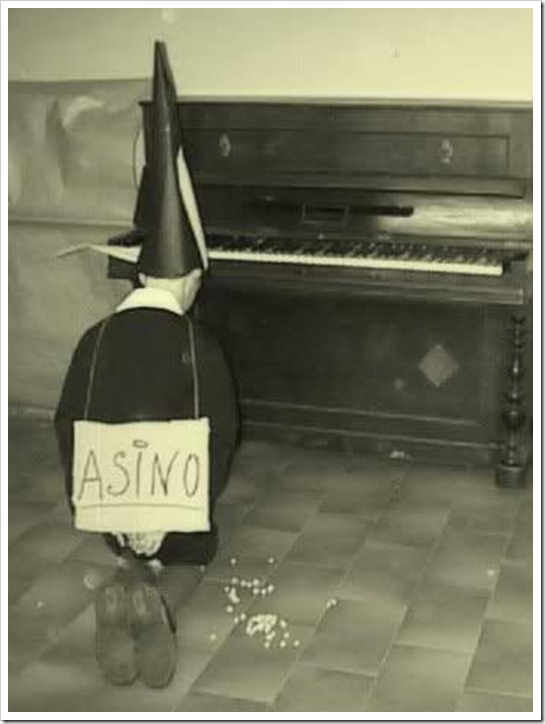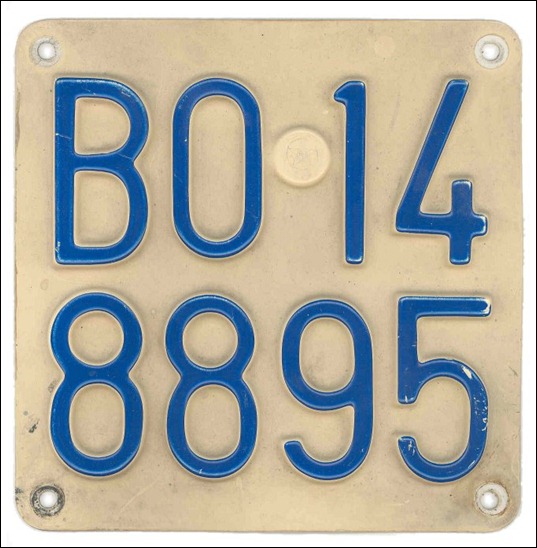Boh! Posted by Serena on Jun 28, 2014 in Culture, Italian Language
A couple of days ago a reader asked me: is "Boh" the Italian equivalent of "Doh!"?
Well, according to the Vocabolario della Lingua Italiana Treccani, the exclamation ‘boh!’ expresses: uncertainty, e.g. ‘boh! non lo so proprio’ (… I don’t really know); incredulity, e.g. ‘boh! se lo dice lui, sarà vero’ (… if he says so, it must be true); or disapproval, e.g. ‘boh! i giovani di oggi sono così maleducati!’ (… Today’s youngsters are so badly behaved!). You’ll also commonly hear the word ‘mah!’ used to express uncertainty or incredulity.
Now, every time I hear this simple little word, I can’t avoid thinking back to my childhood and to a classic school joke that me and my friend Donatella used to enjoy so much:
Un bambino di dieci anni deve affrontare l’esame di fine anno di quinta elementare. Questo bambino non è un bravo studente, anzi è proprio un asino, ma è il figlio del sindaco della città. Perciò il preside della scuola si raccomanda col commissario d’esame di promuovere lo studente asino.
A ten year old boy has to face his end of primary school exams. This boy isn’t a clever student, in fact he’s actually a donkey, but he’s the son of the town’s mayor. Therefore the head teacher begs the examiner to make the stupid student pass the exam.
 |
|
A photo from the good old days before the term ‘special needs’ existed. |
Il commissario allora comincia l’esame orale con una domanda molto semplice di storia: “Quanti erano i re di Roma?”
So the examiner begins the oral exam with a very simple history question: “How many kings of Rome were there?” (N.B. all Italian children know the answer to this)
Studente: “Boh!”
Student: "Doh!"
Commissario: “Passiamo alla matematica: quanto fa due per due?”
Examiner: “Let’s move on to Mathematics: how much is two times two?”
Studente: “Boh!”
Student: "Doh!"
Commissario: “Vediamo se conosci la geografia: qual è la capitale dell’Italia?”
Examiner: “Let’s see if you know your geography: what is the capital of Italy?”
Studente: “Boh!”
Student: "Doh!"
Il commissario, disperato, ha finalmente una illuminazione: “Questa non la puoi sbagliare: qual è la sigla della città di Bologna?”
The desperate examiner finally has a brilliant idea: “You can’t get this one wrong: what’s the abbreviation of the city of Bologna?” (Bo)
Studente: “Mah!”
Student: “Mah!”
 |
|
At one time Italian car number plates used to contain the sigla (abbreviation) of the city where the vehicle was registered. The example above is of an old Bologna number plate. (photo: anon.) |
At this point me and my friend Donatella would burst in fits of laughter. However, at the age of eight it made us feel so well read and ‘intellectual’ compared to the stupid ten years old boy in the joke, and so we used to embellish the story in order to show off our knowledge, e.g. “what is the highest mountain in Europe? What is seven times eight?” and so on.
This reminds me of one of Geoff’s favourite quotes:
“It is so pleasant to come across people more stupid than ourselves. We love them at once for being so.”
Jerome K. Jerome, Idle Thoughts of an Idle Fellow
So dear readers: “How many kings of Rome were there?”

Build vocabulary, practice pronunciation, and more with Transparent Language Online. Available anytime, anywhere, on any device.




Comments:
Elaine:
Divertente e interessante, come sempre. C’erano 7 re di Roma
Serena:
@Elaine Brava Elaine!
Saluti da Serena